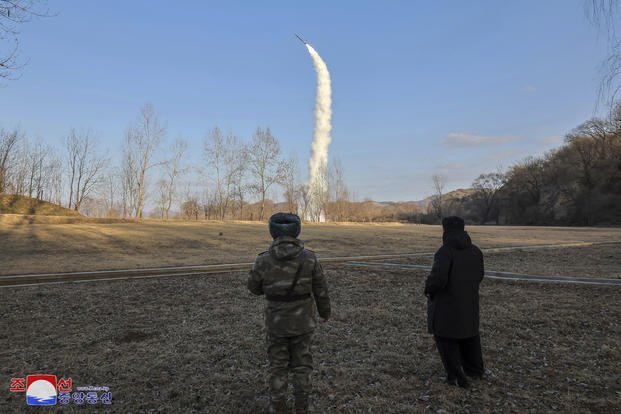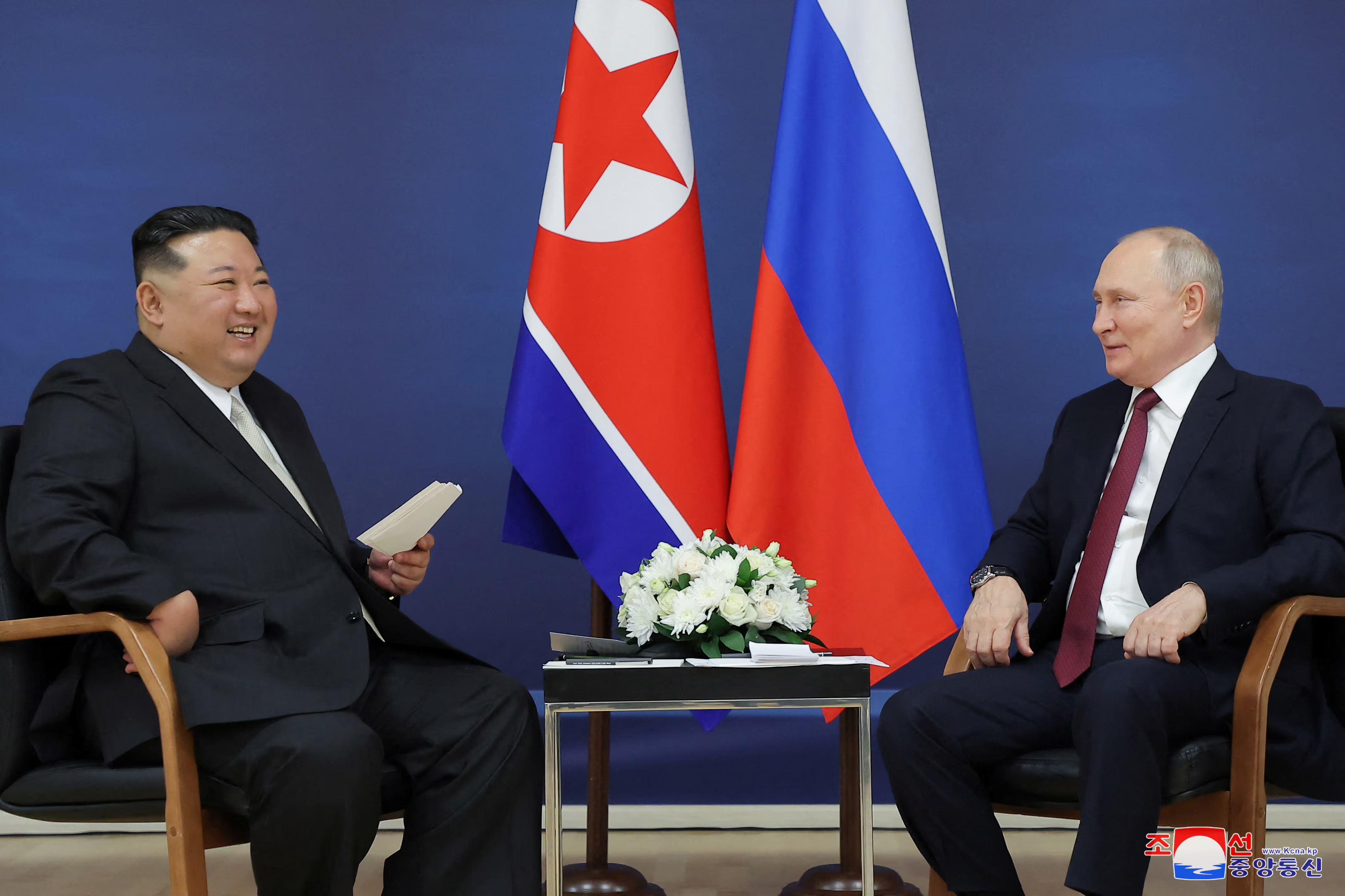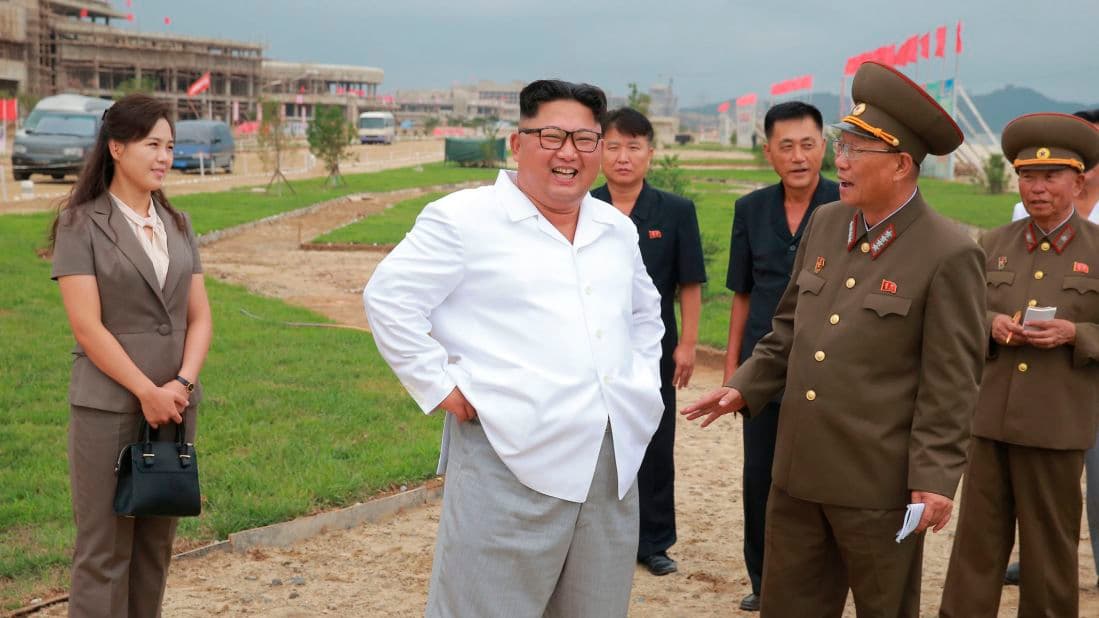North Korea"s new Wonsan-Kalma beach resort is more than just a tourism development; it is a calculated political statement worth $2 billion. As the nation unveils this luxury facility, the implications for international relations, particularly with the U.S. and Russia, cannot be overlooked.
Trump"s Vision Becomes Reality
In a striking twist of fate, a vision once articulated by former President Donald Trump during his first day in office has materialized. Trump suggested that North Korea could see a boom in tourism, specifically mentioning the potential for luxury condos along its coast. Fast forward to 2025, and the Wonsan-Kalma Coastal Tourist Area, featuring over 20,000 hotel rooms, has officially opened, but is it a sign of advancing diplomacy or mere opportunism?
North Korea"s Strategic Alliances
The grand opening drew the attention of Russian officials, emphasizing North Korea"s pivot towards its northern neighbor as it attempts to strengthen ties in the face of global sanctions and isolation. As reported by NPR, the attendance of Russian diplomats marks a significant moment for Pyongyang in its quest for economic partnerships.
Tourism as a Political Tool
However, the question remains: how many tourists will actually visit? North Korea has historically restricted foreign visitors, and according to HG Br, barely 880 Russians were classified as tourists last year. This raises doubts about whether the resort can actually sustain itself economically, let alone live up to the extravagant promises made by its leaders.
\n\n
North Korea Says it Tested Cruise Missile System and Vows ...
Potential for Diplomatic Engagement
Experts speculate that North Korea may eventually seek to attract tourists from countries beyond Russia and China, which could open the door for renewed dialogue with the United States. As noted by AP News, for any substantial diplomatic engagement to occur, several political hurdles must be cleared first, including security and military concerns.
The Role of Digital Rights and Privacy
The development of this resort highlights a crucial intersection of technology and international policy, particularly regarding digital rights and privacy. As North Korea attempts to modernize its economy, it also faces the challenge of maintaining control over information flow and surveillance. The implications for tourists and foreign investors regarding data privacy and security are significant, especially in a regime known for its oppressive monitoring tactics.
Implications for Global Technology Policy
As nations grapple with the complexities of engaging with North Korea, tech policy experts must consider how digital infrastructure will be developed and regulated. Will foreign tech companies be willing to invest in a country with a notorious history of human rights abuses? The evolving landscape of technology policy will need to adapt to these emerging realities, especially as North Korea seeks to integrate into the global economy.
\n\n
Explainer: Why Putin may visit North Korea | Reuters
Challenges Ahead for North Korea
While the Wonsan-Kalma resort represents a bold step forward in North Korea"s tourism ambitions, it also serves as a stark reminder of the challenges that lie ahead. The reliance on Russia and potential outreach to the U.S. may not be enough to overcome the entrenched isolationism that has defined North Korea"s relations with the world.
As the international community watches closely, the actions taken by North Korea will be scrutinized for their broader implications on global security and economic stability. The path forward remains uncertain, but the stakes are undeniably high.


![[Video] Heavy clashes and gunfire reported in Baghdad, Iraq](/_next/image?url=%2Fapi%2Fimage%2Fthumbnails%2Fthumbnail-1768342239932-848qsh-thumbnail.jpg&w=3840&q=75)




![[Video] Gunfire between Iraqi security forces and Sadr militias in Baghdad](/_next/image?url=%2Fapi%2Fimage%2Fthumbnails%2Fthumbnail-1768343508874-4redb-thumbnail.jpg&w=3840&q=75)
